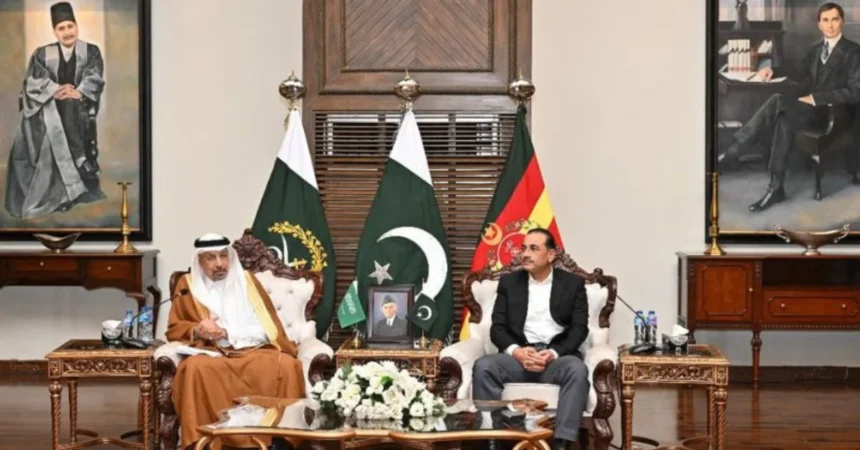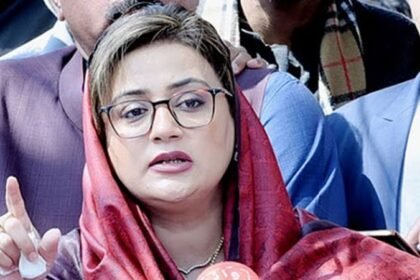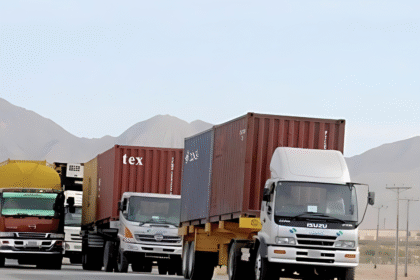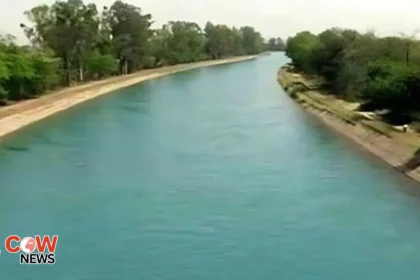Saudi Arabia and Pakistan share a relationship that has withstood the test of time, underpinned by religious, cultural, and economic commonalities. The two countries have grown closer in recent years through increasing economic collaboration, defense agreements, and shared regional interests. As both nations face economic and security challenges, their strategic partnership is more important than ever.
Historical Ties and Common Interests
Saudi Arabia and Pakistan have a rich history of bilateral relations based on religious and political solidarity. This relationship has been particularly important for Pakistan, which has benefited from Saudi Arabia’s financial and diplomatic support during times of economic crises.
The religious dimension of their relationship cannot be understated. Saudi Arabia, as the custodian of Islam’s two holiest sites, holds great significance for the Muslim-majority nation of Pakistan. This religious connection forms the backbone of the people-to-people ties between the two countries. Millions of Pakistanis perform the annual pilgrimage of Hajj and Umrah to Mecca and Medina, cementing the bond between the two nations.
Beyond religion, the political alliance between the two countries is also longstanding. Saudi Arabia has played a significant role in supporting Pakistan on the global stage. In return, Pakistan has often aligned with Saudi interests in the Middle East, especially regarding regional security issues and policies that concern the broader Islamic world.
The Strategic Dimension: Defense and Security Cooperation
One of the strongest pillars of Saudi-Pakistani relations is military cooperation. The two countries have long collaborated on defense initiatives, with Pakistan providing military personnel, training, and expertise to Saudi Arabia. This relationship has evolved over the years into a more formal strategic partnership, with both countries recognizing the importance of collective security in an increasingly volatile region.
Pakistan’s military has a strong presence in Saudi Arabia, where it plays an advisory role and offers training to Saudi military forces. These joint efforts have helped bolster Saudi Arabia’s military capabilities, particularly during times of conflict and instability in the Middle East. For instance, Pakistani troops have helped defend Saudi borders from external threats, demonstrating Pakistan’s commitment to Saudi Arabia’s territorial integrity.
The meeting in 2024 between General Asim Munir, Pakistan’s army chief, and Sheikh Khalid Bin Abdulaziz Al Falih, Saudi Arabia’s Minister of Investment, underscores the strategic importance of military collaboration. The discussions covered defense-related matters but also included economic cooperation, recognizing that economic stability is crucial for maintaining regional security.
Economic Collaboration and Investment Initiatives
In addition to defense ties, Saudi Arabia and Pakistan are increasingly focusing on economic collaboration. With the launch of Saudi Vision 2030, Saudi Arabia’s leadership aims to diversify the kingdom’s economy away from its dependency on oil. This shift has opened new opportunities for Saudi investments in non-oil sectors such as technology, infrastructure, and agriculture, where Pakistan is seen as a key partner.
Saudi Arabia has long been a financial benefactor to Pakistan, providing loans, grants, and oil subsidies. However, recent efforts have focused on transitioning this relationship from one based on aid to one driven by mutual investment. This new approach is evident in the 2024 visit of Saudi Arabia’s investment delegation, which paved the way for up to 30 investment agreements, potentially worth $2 billion.
These agreements target key sectors, including energy, agriculture, and technology. Saudi Arabia sees Pakistan as a strategic partner in its effort to secure food supplies and enhance energy security. At the same time, Pakistan is eager to attract Saudi investment to boost its struggling economy, create jobs, and modernize its industries.
One of the most critical areas of focus is renewable energy. Pakistan has been facing an energy crisis for years, with regular power outages and a growing demand for energy that outstrips supply. Saudi Arabia, with its significant financial resources and expertise in the energy sector, has committed to helping Pakistan develop its renewable energy capacity. The planned investments include solar power projects that would help Pakistan reduce its reliance on expensive imported fuels and move towards a more sustainable energy future.
In the agriculture sector, Saudi Arabia is particularly interested in securing food supplies for its growing population. As the global demand for food increases, Saudi Arabia is looking to Pakistan to help meet this need. Pakistan, with its vast agricultural land and favorable climate, is seen as an ideal partner in this endeavor. Saudi investments are expected to modernize Pakistan’s agricultural practices, increase productivity, and improve food security for both nations.
The Role of CPEC in Strengthening Economic Ties
The China-Pakistan Economic Corridor (CPEC) is another critical component of the growing economic ties between Saudi Arabia and Pakistan. CPEC is a flagship project under China’s Belt and Road Initiative (BRI) and is designed to connect the Pakistani port of Gwadar to China’s Xinjiang region via a network of roads, railways, and pipelines.
Saudi Arabia’s interest in CPEC is significant for several reasons. First, it provides Saudi Arabia with a strategic opportunity to diversify its trade routes and enhance its role in global trade. By investing in CPEC projects, Saudi Arabia can gain access to new markets and strengthen its economic ties with both China and Pakistan.
Second, CPEC presents an opportunity for Saudi Arabia to invest in Pakistan’s infrastructure development, which is critical for the country’s economic growth. By partnering with Pakistan on CPEC projects, Saudi Arabia can help accelerate the construction of roads, railways, and energy infrastructure, which will create jobs and spur economic activity in Pakistan.
Finally, CPEC offers a unique opportunity for Saudi Arabia to invest in the development of Gwadar Port, which is strategically located on the Arabian Sea. Saudi investment in Gwadar could transform the port into a major hub for regional trade, connecting Saudi Arabia to key markets in South Asia, Central Asia, and the Middle East.
Challenges and Opportunities
While the relationship between Saudi Arabia and Pakistan presents numerous opportunities, it is not without challenges. Political instability and security concerns in Pakistan have historically deterred foreign investors, and these concerns remain a significant hurdle for Saudi businesses looking to invest in the country.
To address these challenges, Pakistan has made efforts to create a more business-friendly environment. Recent reforms have aimed at improving the ease of doing business, attracting foreign investment, and reducing bureaucratic red tape. These reforms, coupled with Pakistan’s strategic importance to Saudi Arabia, are likely to mitigate some of the risks associated with investing in the country.
On the Saudi side, the primary challenge is balancing its growing relations with India, a regional rival of Pakistan. Saudi Arabia’s increasing economic ties with India could create diplomatic tensions between Riyadh and Islamabad, particularly if Saudi investments in Pakistan are perceived to be in competition with its investments in India.
However, both Saudi Arabia and Pakistan have shown a willingness to manage these challenges and focus on areas of mutual benefit. The Saudi leadership, under Crown Prince Mohammed Bin Salman, has demonstrated a pragmatic approach to foreign policy, seeking to maintain strong relationships with both India and Pakistan. For its part, Pakistan has been careful to avoid becoming entangled in regional rivalries, maintaining a neutral stance on issues that could strain its relations with Saudi Arabia.
Looking Ahead: The Future of Saudi-Pakistani Relations
The future of Saudi-Pakistani relations looks promising, particularly in the areas of economic and defense cooperation. As both countries continue to collaborate on key projects, their partnership is expected to grow stronger in the coming years.
Saudi investments in Pakistan are likely to play a critical role in supporting the country’s economic recovery, particularly as it seeks to overcome its energy crisis and modernize its agricultural sector. At the same time, Pakistan’s military cooperation with Saudi Arabia will remain a cornerstone of their strategic partnership, ensuring regional stability and security.
The successful implementation of the agreements reached during the 2024 visit by the Saudi investment delegation will be a key test of the durability of this partnership. If these projects are executed effectively, they could pave the way for even greater collaboration between Saudi Arabia and Pakistan in the future, contributing to the prosperity and stability of both nations.
#PakistanSaudiRelations #EconomicPartnership #Vision2030 #SaudiInvestment #BilateralTies #RegionalStability #DefenseCooperation #CPEC







